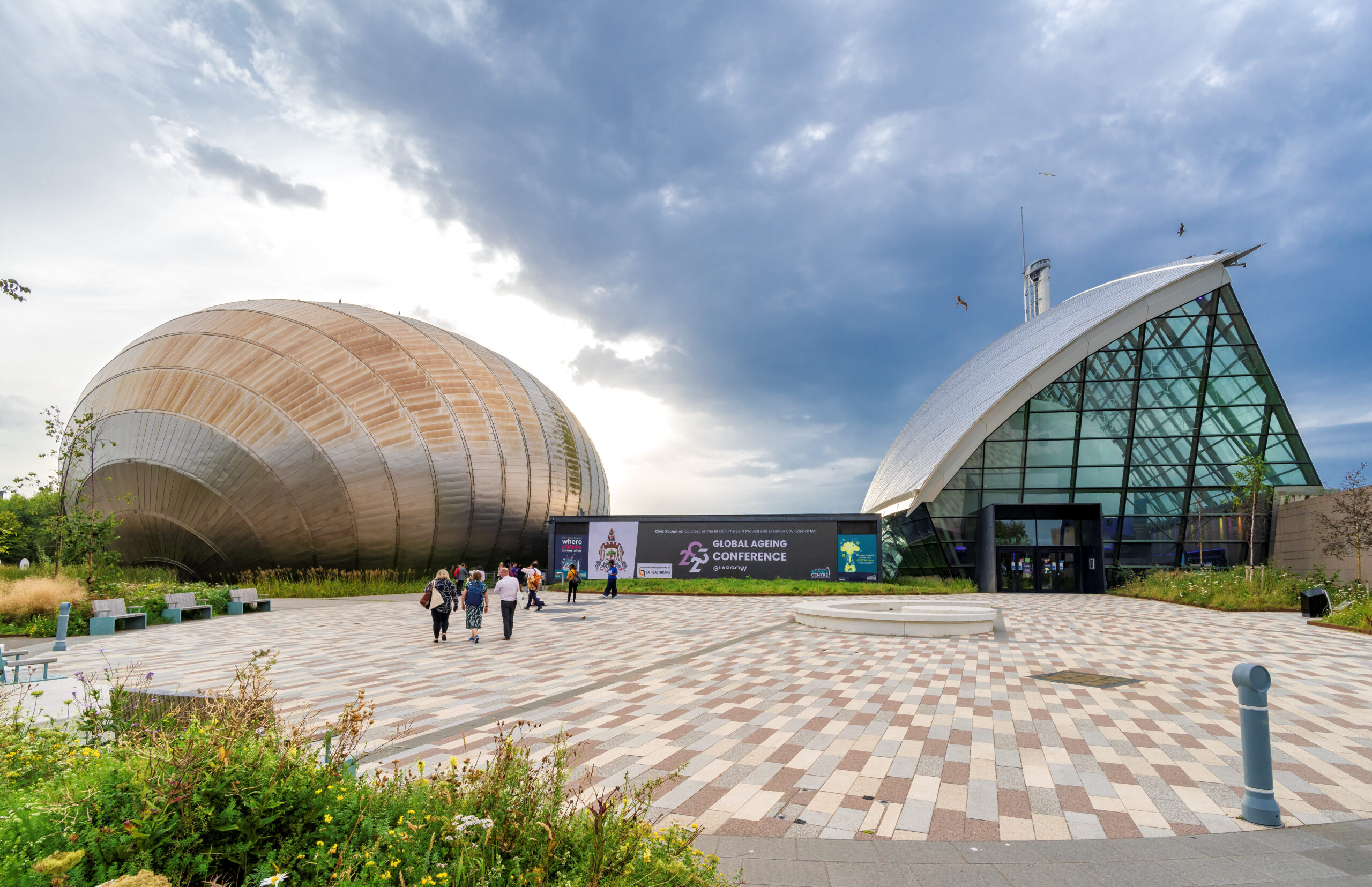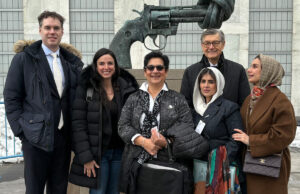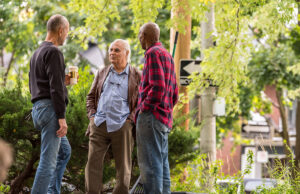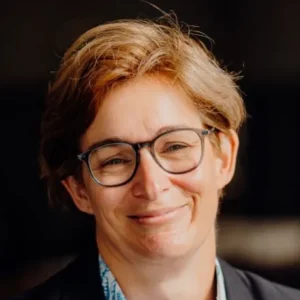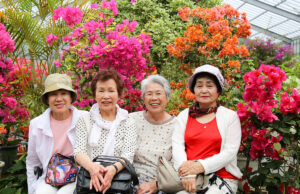Kim Gaskell, vice president of operations for Exeter, NH-based RiverWoods, joined the Global Ageing Network (GAN) board in January 2024. Her first contact with GAN came in 2023 “on a whim,” she says, when she responded to a request for speakers, and was chosen to present at the September 2023 Social Care International Workforce Summit in Glasgow, Scotland, held a day before that year’s Global Ageing Conference.
Her presentation, “The Future of Work,” was about the integration of technology into aged care, along with the generational differences among U.S. aging services staff. “At River Woods,” she notes, “we have five generations in the workforce.” It was well-received, and Gaskell was impressed by the experience of being among global leaders, hearing about the challenges and opportunities faced by providers in other countries, despite feeling like “such an absolutely small fish in a big pond.” While in Scotland, she met several GAN board members and Executive Director Katie Smith Sloan, and shortly thereafter, Gaskell was invited to join the board.
Global Ageing Network spoke to Gaskell for her observations on her time as a GAN board member.
Global Ageing Network: What made you want to get more involved in the Global Ageing Network?
Kim Gaskell: I, like many others, stumbled into this field. It wasn’t something I sought out of high school or college, but now I feel very passionate about the work that I’m doing and I want to have a continued career in this field. I feel if I’m learning, I’m growing, and I can be a better leader, especially if I have these different perspectives and ways to connect the dots. There are things that we could be doing better locally within my organization or within my state, and there’s a feeling of [wanting to] give back to the greater good.
Global Ageing Network: What are the most interesting things you have learned from your GAN experience, and what have you brought back to your own organization?
Kim Gaskell: I’m learning [about] cultural differences and the impact they have on the ability and the ways in which we care for older adults. What I appreciate about that, and what I took away from the conference, is that you never want to try to solve things in a vacuum, and getting a lot of perspectives is super helpful.
RiverWoods right now has a major renovation project happening on our largest [campus], and at the conference I attended a lot of the design sessions on the best ways to design senior housing. What are the trends, and what are other countries doing? We’ve had to go back and redesign based on zoning board recommendations, so every time we’ve had to hit pause, I’ve actually pulled up my notes from those sessions at the conference. One thing I learned is that [in other countries] they bring an occupational therapist into the design team: someone who is more trained to look at the functionality of the spaces you’re creating. I don’t think we would have independently thought to do that. It is a role we will look to add as the project moves from design to implementation.
The idea that completely jazzed me up was near the Royal Troon Golf Club [in Scotland], they have created a dementia friendly village [Dementia Friendly Troon and Villages] where they have essentially trained the entire town on how to support residents in the community living with dementia. It’s providing education to a local coffee shop, or a gas station, so that if a senior happens to wander there, they know how to engage with the resident safely, how to get help. There’s a training and educational aspect of it. That was inspiring to me, and I think about [my] community, and how we could move towards doing something like that.
Global Ageing Network: What GAN initiatives are you excited about?
Kim Gaskell: We got to talking about how we [can] develop future leaders and how we can provide training and education opportunities. How do we strengthen the potential leadership pool of people who would be interested in that kind of learning—learning from other countries and not limited to our own bubble?
That led to the first series of the Global Ageing Network Leadership Program. We got speakers and facilitators from different countries, came up with a curriculum, and launched it, and now we’ve launched the second cohort.
Global Ageing Network: This year’s Global Ageing Network Conference is being held in conjunction with the LeadingAge Annual Meeting in Boston. How do the side-by-side conferences help the organization?
Kim Gaskell: For one, this side-by-side event allows us to show how interconnected the aging services world really is, and the chance to draw more attention to GAN’s international reach. But it’s not just about expanding the awareness of GAN, but about making sure our members here are truly aware of the broader, often different challenges faced by aging communities worldwide. This kind of exposure sparks fresh conversations, new ideas, and innovative solutions, which I know will be key components of the conference.
By creating this buzz around the conference, we are opening the door for U.S. members to become more actively involved with GAN, giving them firsthand exposure to the global conversations around aging. It’s an opportunity to build a lasting bridge between the local and the global, enabling us all to grow, learn, and lead together. The more diverse the ideas and strategies we bring to the table, the better we can address the challenges facing older adults everywhere, and celebrate the progress that’s already being made.
I also serve on the advisory board for the conference/expo and we are working on ensuring our global attendees feel welcome and that we create space that fosters collaboration, connection, and engagement.
